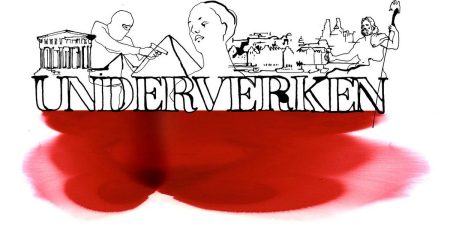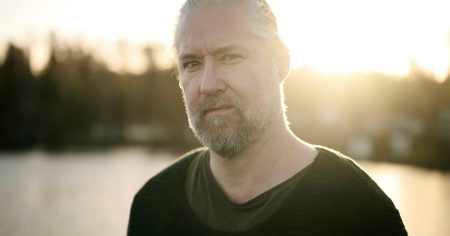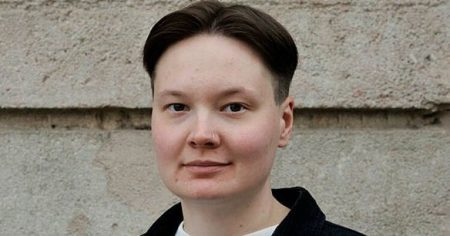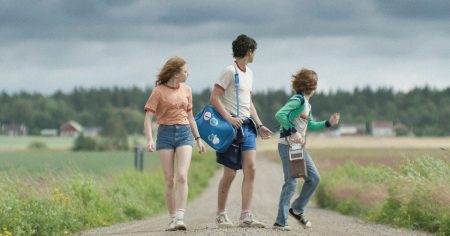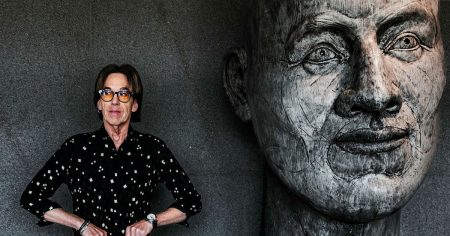The illusion of a perpetual winter wonderland, crafted with artificial snow and painted stones in Malmö’s Folkets Park, serves as a poignant backdrop for a deeper societal narrative. This staged winter dream, enchanting for children anticipating Christmas, contrasts starkly with the harsh realities faced by many, particularly as economic disparities become increasingly pronounced during the holiday season. The very notion of this fabricated winter, persisting even amidst the lingering warmth of late October, mirrors the manufactured narratives surrounding wealth and poverty that dominate public discourse. The acceptance of this theatrical representation of winter foreshadows the ease with which many accept the equally staged narratives justifying social inequalities.
Comedian Diane Morgan’s mockumentary, ”Cunk on Christmas,” provides a satirical lens through which to examine the holiday’s inherent contradictions. Her deconstruction of Santa Claus, the arbiter of naughty and nice, exposes a system where affluence, rather than behavior, dictates reward. This comedic observation underscores a troubling truth: material possessions often overshadow genuine need. The affluent receive abundantly, while the less fortunate, regardless of their deeds, receive proportionally less. This echoes a societal structure where economic status, rather than merit, often determines one’s fate. Cunk’s humorous critique subtly reveals a deeper societal malaise where economic disparities are normalized and even celebrated.
This disparity plays out in stark reality as Christmas approaches. News reports highlight the stark contrast between the wish lists of children from affluent families, featuring luxury items like 250,000 kronor moped cars, and the pleas for basic necessities like shampoo and deodorant from children relying on charity. This juxtaposition lays bare the vast gulf between those who have and those who have not. Rather than prompting outrage or a call for change, this disparity is often rationalized as the natural order of things. The wealthy are deemed deserving of their abundance, while the poor are seen as somehow responsible for their lack. This ingrained acceptance of inequality becomes a self-fulfilling prophecy, perpetuating the cycle of poverty.
This narrative of inherent worth based on economic status is further reinforced by political figures like Ulf Kristersson, who, while disclosing his substantial monthly income of 190,000 kronor, casually dismisses the struggles of those unable to work. He asserts that limited resources for such individuals are an immutable fact, a law of nature. This nonchalant acceptance of economic disparity, voiced by a leader in a position of power, normalizes and even justifies the struggles of the less fortunate. His statement reveals a deeply ingrained belief system where wealth is seen as a marker of merit and poverty as a consequence of personal failing.
This societal performance, where affluence equates to virtue and poverty to failure, is further amplified by government initiatives. The recent directive to measure the proportion of ”self-supporting” individuals, based on a definition that excludes many working poor, exemplifies this trend. This metric, borrowed from the pro-business organization Svenskt Näringsliv, reinforces the narrative of individual responsibility while ignoring systemic issues like precarious employment and low wages. It effectively stigmatizes those struggling to make ends meet, further entrenching the divide between the haves and have-nots. This initiative, rather than addressing the root causes of economic insecurity, serves to further marginalize those already struggling.
Ultimately, the artificial winter wonderland, with its manufactured snow and painted stones, becomes a metaphor for the artificial narratives we construct to justify economic inequality. The disconnect between the staged winter scene and the reality of the season mirrors the disconnect between the narratives of meritocracy and the lived experiences of those struggling to make ends meet. The readily accepted illusion of a perpetual winter, despite contradictory evidence, parallels the widespread acceptance of economic disparities despite the glaring evidence of systemic injustice. The dream of a shared prosperity, where basic needs are met for all, seems as distant and improbable as a true winter in a perpetually warm Malmö, highlighting the urgent need to dismantle these manufactured narratives and strive for a more equitable society.






